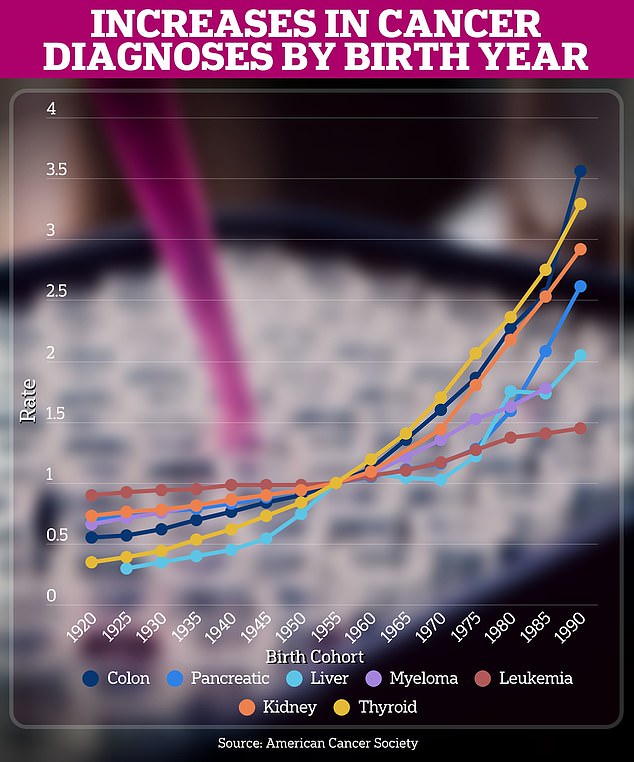Newer generations are at greater risk of more than a dozen cancers than older generations, a major study suggests.
An analysis of tens of millions of diagnoses found that millennials (born between 1986 and 1995) and Generation X (1965-1985) were more likely to develop 17 forms of cancer than the post-World War II baby boomer generation.
The 17 include some of the deadliest cancers, including colon cancer, pancreatic cancer, and liver cancer.
Obesity and excessive alcohol consumption are thought to be partly driving the crisis, although experts are still not quite sure what else is behind the rise.
The rise in cases among younger generations threatens to reverse decades of progress in the fight against the disease. Diagnoses are expected to nearly double between 2020 and 2050 and there are signs that mortality rates are beginning to level off.
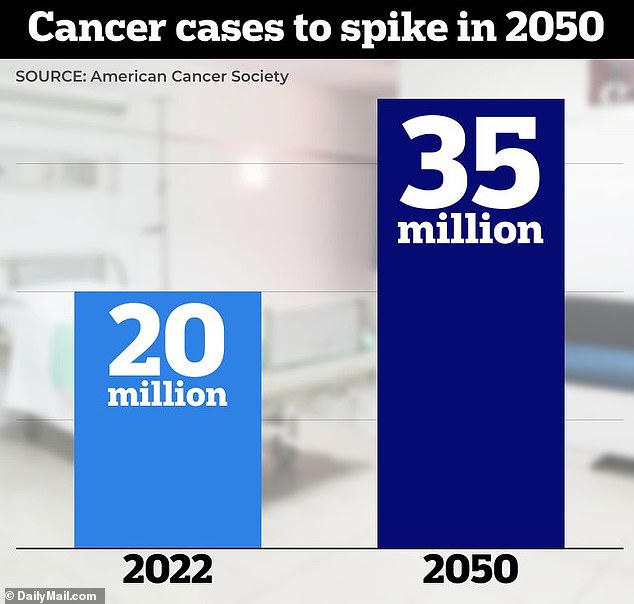
Around 20 million cases of cancer were diagnosed in 2022, but that number is expected to rise to more than 35 million cases by 2050.
Experts also say the growing burden of cancer will prevent them from contributing to the U.S. economy, causing higher unemployment and slower growth and increasing health care costs.
This could trigger a vicious cycle in which poorer health leads to economic hardship and contributes to even poorer health due to lack of access to treatment.
Dr. Ahmedin Jemal, senior author of the study and senior vice president for health equity surveillance and science at the American Cancer Society, said, “The rise in cancer rates among this younger group of people indicates generational changes in cancer risk and often serves as an early indicator of the future burden of cancer in the country.”
‘Without effective population-level interventions, and as the elevated risk in younger generations is passed on as people age, there could be an overall increase in the cancer burden in the future, halting or reversing decades of progress against the disease.’
“The data highlight the critical need to identify and address underlying risk factors in Gen X and Millennial populations to inform prevention strategies,” she added.
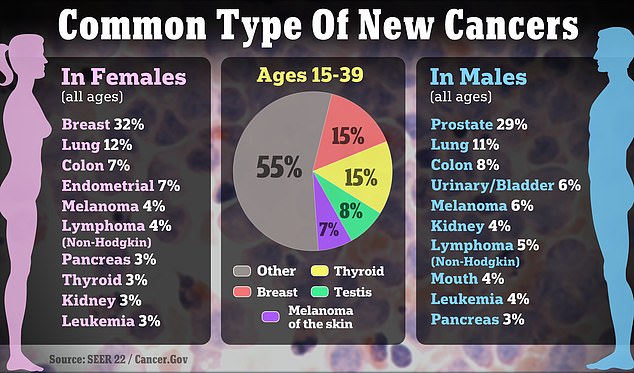
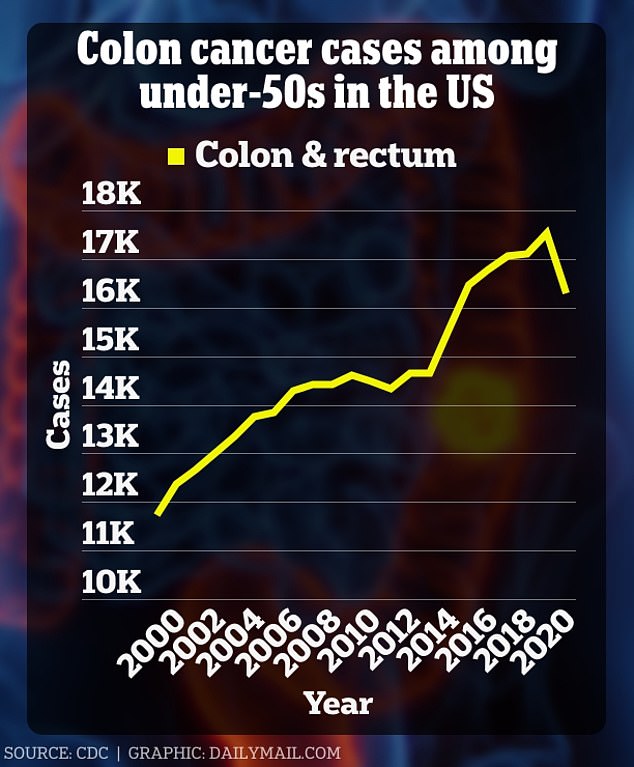
The findings come amid a worrying rise in colorectal cancer in Americans under age 50.
ACS researchers analyzed data on more than 23 million patients diagnosed with 34 types of cancer over a 20-year period. The patients ranged in age from 25 to 84.
The patients were then divided into cohorts according to their years of birth, from 1920 to 1990.
Generation Xers and millennials were up to three times more likely to develop several types of cancer than baby boomers, including colorectal cancer, which has been increasing rapidly among adults under age 50.
And as cancer rates declined among older people, incidences in younger patients increased for nine types of cancer, including breast, uterine, colorectal, ovarian and testicular.
The finding is in line with other national data warning of a rise in cancer among younger adults.
While part of the increase could be due to increased testing and patients’ better ability to detect the disease, the new study shows that rising lifestyle factors such as obesity and alcohol consumption could be partly to blame.
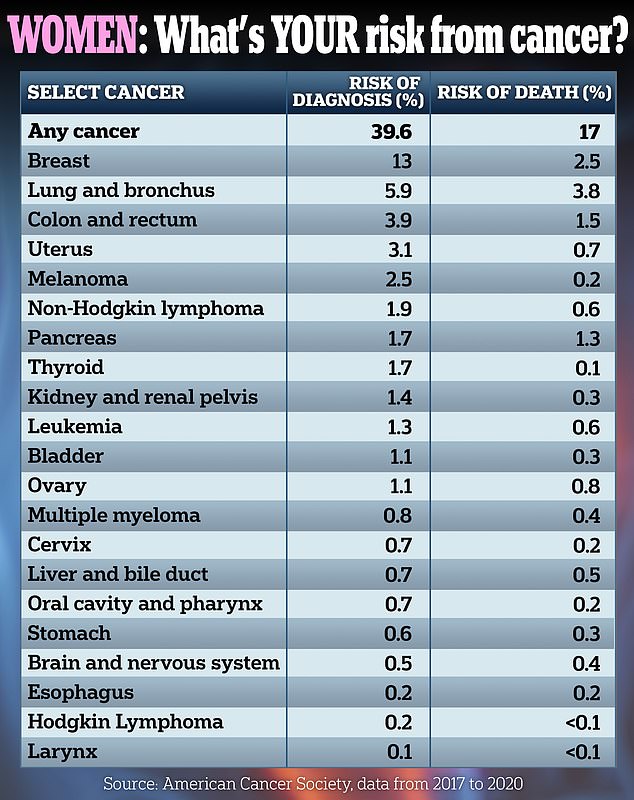
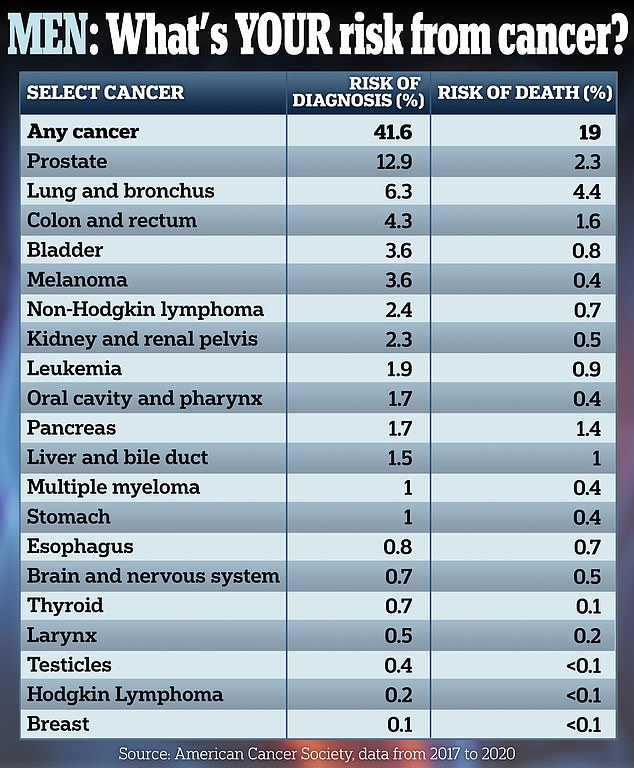
The researchers said that among adults aged 25 to 49, “the most rapid increases in incidence rates” were seen in cancers of the pancreas, small intestine, kidney and pelvis, all of which are linked to obesity and alcohol.
Mortality rates also increased among younger patients for liver, uterus, gallbladder, testicular and colorectal cancer.
Dr. Hyuna Sung, senior author of the study and senior scientist for surveillance and health equity at the American Cancer Society, said: “These findings add to growing evidence of increased cancer risk in generations beyond the Baby Boomer generation, extending previous findings of early-onset colorectal cancer and some obesity-associated cancers to encompass a broader range of cancer types.”
‘Birth cohorts, groups of people classified by their birth year, share unique social, economic, political and climatic environments, which affect their exposure to cancer risk factors during their crucial developmental years.’
‘Although we have identified cancer trends associated with birth years, we still do not have a clear explanation for why these rates are increasing.’
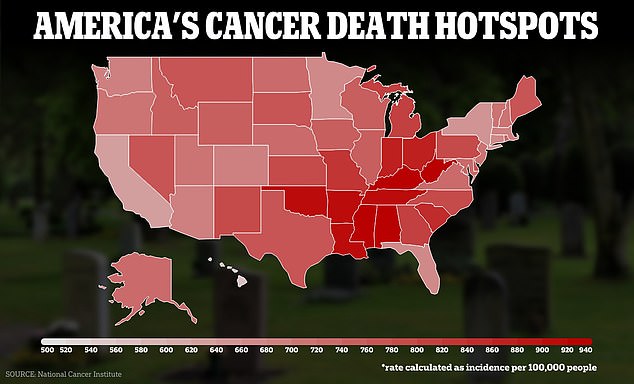
CDC data shows the top cancer death clusters, with Mississippi leading with 985 deaths per 100,000 people
Although the team did not find a direct cause for these increases, they speculated that obesity could be an important factor in the development of colorectal, uterine, gallbladder, kidney and pancreatic cancers.
For example, CDC data released last year revealed that 40 percent of Americans are obese, meaning they have a body mass index (BMI) of 30 or higher. In addition, 30 U.S. states saw an increase in obesity compared to the previous year.
In addition, the team noted that increased excessive alcohol consumption could be responsible for liver cancer, which is largely caused by alcoholism.
According to the latest CDC data, for example, the number of adults reporting heavy drinking increased 12 percent between 2011 and 2017.
While the study covered a wide range of cases, it still had some limitations, including missing data from cancer registries and misidentification of some cancers.
The findings were published Wednesday in The Lancet Public Health.

